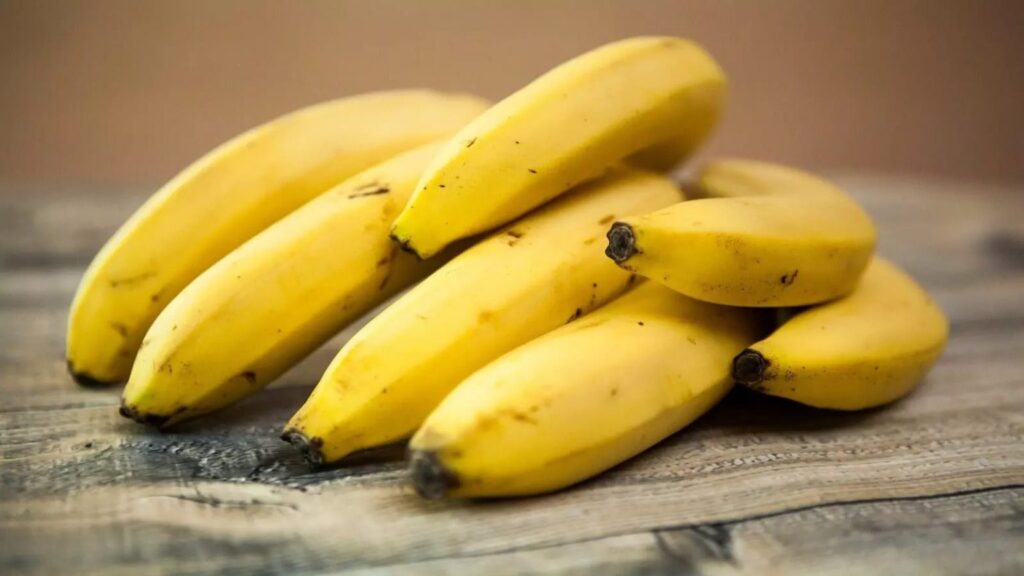- Cameroon exported 24,643 tons of bananas in December 2022 compared to 20,631 in 2021.
- According to the Cameroon Banana Association (ASSOBACAM) report, the sharp increase in banana exports in December 2022 is a result of the successful performances of Cameroon’s three main producers.
- Experts are racing against time to stop a new banana disease threatening banana plants in Africa.
The Cameroon Banana Association recently published data on the country’s banana exports. The data shows that the country exported 24,643 tonnes in December 2022, compared to 20,631 in the same period in 2021. This is an increase of 16.2 per cent year-on-year.
This upward performance is driven by three of the country’s main producers. Indeed, the market leader, Plantations du Haut Penja (PHP), a local subsidiary of the Compagnie fruitière de Marseille, reported an increase in exports in December 2022. The company exported a total of 19,572 tonnes compared to 17,677 tonnes in December 2021, an increase of 1,895 tonnes between the two periods.
Meanwhile, Boh Plantations (BPL), the smallest player in the market, sold 1,788 tonnes of bananas in December 2022, compared to 1,577 tonnes a year earlier. This represents an increase of 211 tonnes between the two periods. Similar to these previous operators, the Cameroon Development Corporation (CDC), a state-owned company based in the South-West region of the country, reported a positive performance. The company exported 3,103 tonnes of bananas in December 2022, up from 1,377 tonnes in December 2021, an increase of 1,726 tonnes between the two periods.
Banana is one of the top ten non-oil products Cameroon exports to the European Union. To boost the revenues generated by the sector, the country plans to increase its yearly production to 500,000 tons by 2030, according to the projections contained in the 2020-2030 national development strategy.
Read: Cameroon: Investing in Central Africa’s melting pot
Bananas are one of the world’s most popular fruits, enjoyed for their sweet taste, creamy texture, and numerous health benefits. Bananas are packed with essential vitamins and minerals, and are an excellent source of dietary fiber. They are also low in calories and fat, making them a healthy snack for people of all ages.
Bananas are native to Southeast Asia, but are now grown in many parts of the world, including South and Central America, the Caribbean, and Africa. Bananas are the fourth largest agricultural export worldwide, with the majority of exports coming from developing countries.
Bananas have many health benefits, including providing energy and nutrients, improving digestion, strengthening the immune system, and helping to prevent anemia. Bananas are also high in potassium, which helps to regulate blood pressure, and they are a good source of vitamin B6, which helps to keep nerves and muscles healthy. Bananas are also rich in antioxidants, which can help to protect against certain diseases.
Bananas can be enjoyed in many different ways, eaten raw, added to smoothies and other drinks, used to make desserts and baked goods, or even cooked and served as a savory dish.
The banana crop is important for African economies because it is a major source of income for many small-scale farmers and a significant export crop. Bananas are also a staple food in many African countries, providing a reliable source of nutrition for local communities. Additionally, the banana industry creates jobs in areas such as farming, transportation, and export, which can have a positive impact on economic development.
Meanwhile, experts are racing against time to stop a new banana disease threatening banana plants in Africa. Known as Fusarium wilt TR4 and first detected in 2013, the disease is feared to severely impact on banana production if left unchecked.
Fusarium wilt TR4, also known as Panama disease, is a soil-borne fungal disease that affects banana plants. The strain known as TR4 is particularly virulent and has been causing significant damage to banana crops in Africa. It affects the Cavendish subgroup of bananas, which includes the most commonly exported banana cultivar, the Cavendish.
The disease is caused by the fungus Fusarium oxysporum f. sp. cubense and can lead to wilting and death of the plant. There is currently no known cure for the disease and the best way to control it is through quarantine measures and the use of resistant varieties of banana. It is a major threat to the global banana industry. The disease has recently been reported in Africa, with countries such as Mozambique, Tanzania, and Uganda among the affected.
Tanzania, one of the major banana growers in Africa, and Mozambique are among countries targeted under a drive to tame the menace.
The fact that the fungus can survive in the infested fields for decades and difficulty to eradicate, facilitated its spread across borders.
The research, according to him, has been launched under with the support of the Australian Centre for International Agricultural Research (ACIAR).
It is estimated that 70 to 100 million people in East and Central Africa rely directly or indirectly on bananas for their livelihoods.
The crop is grown on around 2.5 million ha in the region, making up 50 percent of total agricultural production in some countries.
Statistics from the Australian research agency show that the entire eastern and central African region has an annual banana production valued at US$4.3 billion.
The project will investigate the risk posed by TR4 (Fusarium wilt) to smallholder banana producers in order to halt further spread.
In Tanzania, the project has roped in the ministry of Agriculture and its key research arm; Tanzania Agricultural Research Institute (Tari). Execution agencies include the International Institute of Tropical Agriculture (IITA) through its regional office in Dar es Salaam.
